Peakintelligence™ pour GCMS - Fonctionnalités
Logiciel optionnel Peak Processing pour LabSolutions Insight™
Parameter-Free Peak Integration
The AI assists with the detection of chromatogram peaks and provides data analysis on par with that of an experienced user.*
The AI was trained with examples of peak integration by experienced users, eliminating the need to adjust parameters.
* The software is not equipped with a function to learn from a user’s peak data.
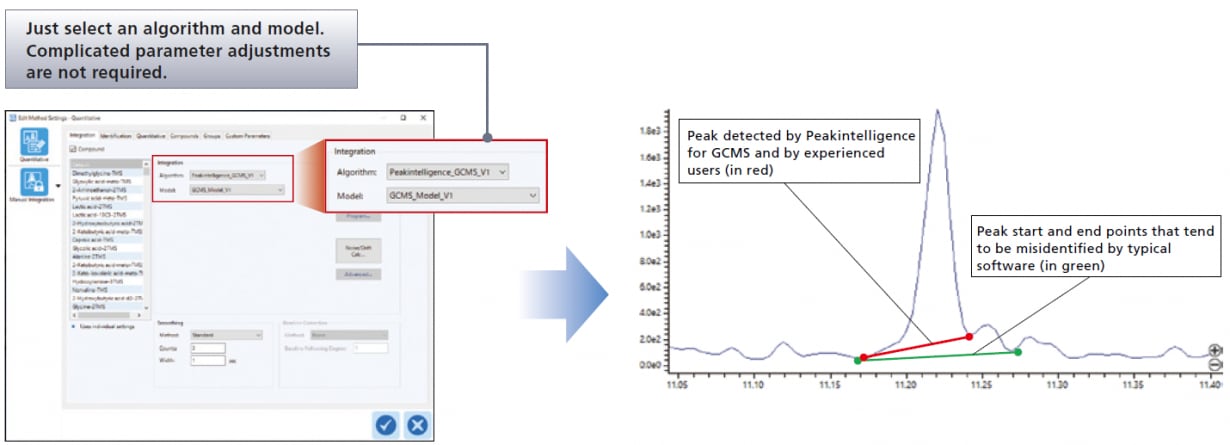
Capable of Analyzing Complicated Chromatograms with Ease
Peakintelligence for GCMS can detect peaks without adjusting parameters even in complicated chromatograms that are difficult to analyze with conventional algorithms.
-
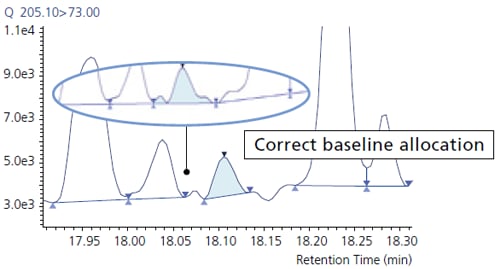
Correctly integrates even when the baseline allocation is difficult
-
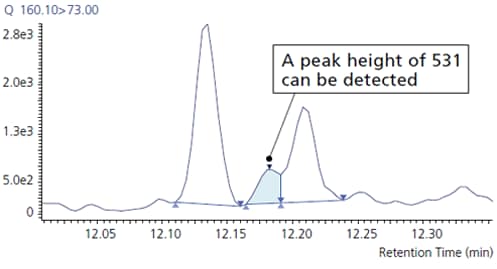
Even small peaks can be detected
-
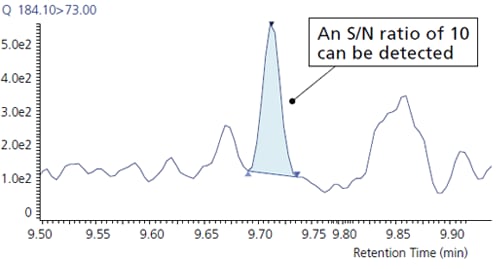
Even peaks with a low S/N ratio can be detected
Shortens the Time Required for Manual Peak Integration in the Metabolite Data Analysis Workflow
In metabolite data analysis, numerous compounds are detected and chromatograms with incorrect peak integration must be corrected by manual peak integration, creating a bottleneck in the workflow. Peakintelligence for GCMS eases this bottleneck by reducing the number of compounds per sample requiring manual peak integration to about a quarter of those with the current algorithm. (For metabolite data containing 475 compounds per sample.)
- Number of Compounds
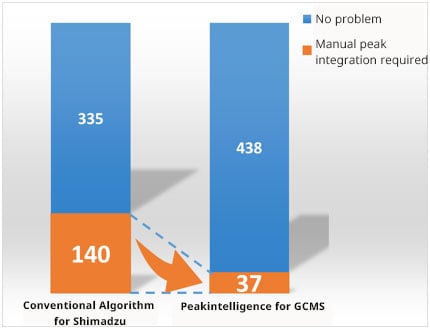
- Correction Time
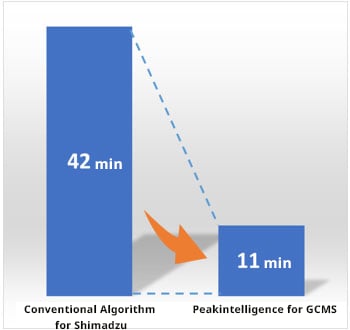
Results with Shimadzu test data
Application to Residual Pesticides Data
Manual peak integration corrections are required when analyzing multi-pesticide standards in which mixed pesticide standard solutions are used, and when analyzing real-life samples affected by contaminants. If the integration of the detected peaks is in error, pass/fail judgments cannot be made correctly, which can lead to data falsification. This software reduces the corrections by manual peak integration in important analyses involving regulatory pass/fail judgments, enabling the acquisition of stable quantitative results that do not depend on the operator. Further, with residual pesticides, the software is compatible with both MRM and SIM data.
STEP 1. Confirmation of the calibration curve created with the standard samples and peak integration results
The software implements peak integration on par with an experienced operator and with no configuring of parameter settings, reducing the time spent on peak integration corrections.

STEP 2. Quantitative determination of an unknown sample
With peak integration of samples containing contaminants, a baseline processing method may differ by operator. AI peak integration yields the same results regardless of who implements it, so the quantitative determination is stable.



